Below you will find information that can be helpful for this stage of your families journey, as well as programs offered for this Age & Stage.
Education | Life After School | Puberty/Dating | Medical Health Care | Regression | Nutrition/Exercise/Weight Management | Financial/Legal | Program Offerings
Welcome
We are here to support you in every way possible and welcome you to contact us with any questions you may have.
| Director of Family Support |
|
What Is an IEP? | Individualized Education Program Explained
Navigating your child’s Individualized Education Program/Plan (IEP) is a BIG job. Check out these great IEP resources from our “tried and true” experts.
- Wrightslaw – Offers a wealth of IEP information and resources, training, and expertise in Special Education Law.
- A Day in Our Shoes – Learn more about the IEP process from a mother-turned-advocate's perspective.
- Parent Tips for the IEP – This quick reference guides you through before, during and after the IEP meeting with helpful tips!
- Customizable “All About Me” Template – Customize, print, and share with your child’s IEP team
- Editable and Printable “IEP at a Glance” - Ensure you and your child’s school team are LITERALLY on the same page by completing this one-page summary with your child’s IEP team.
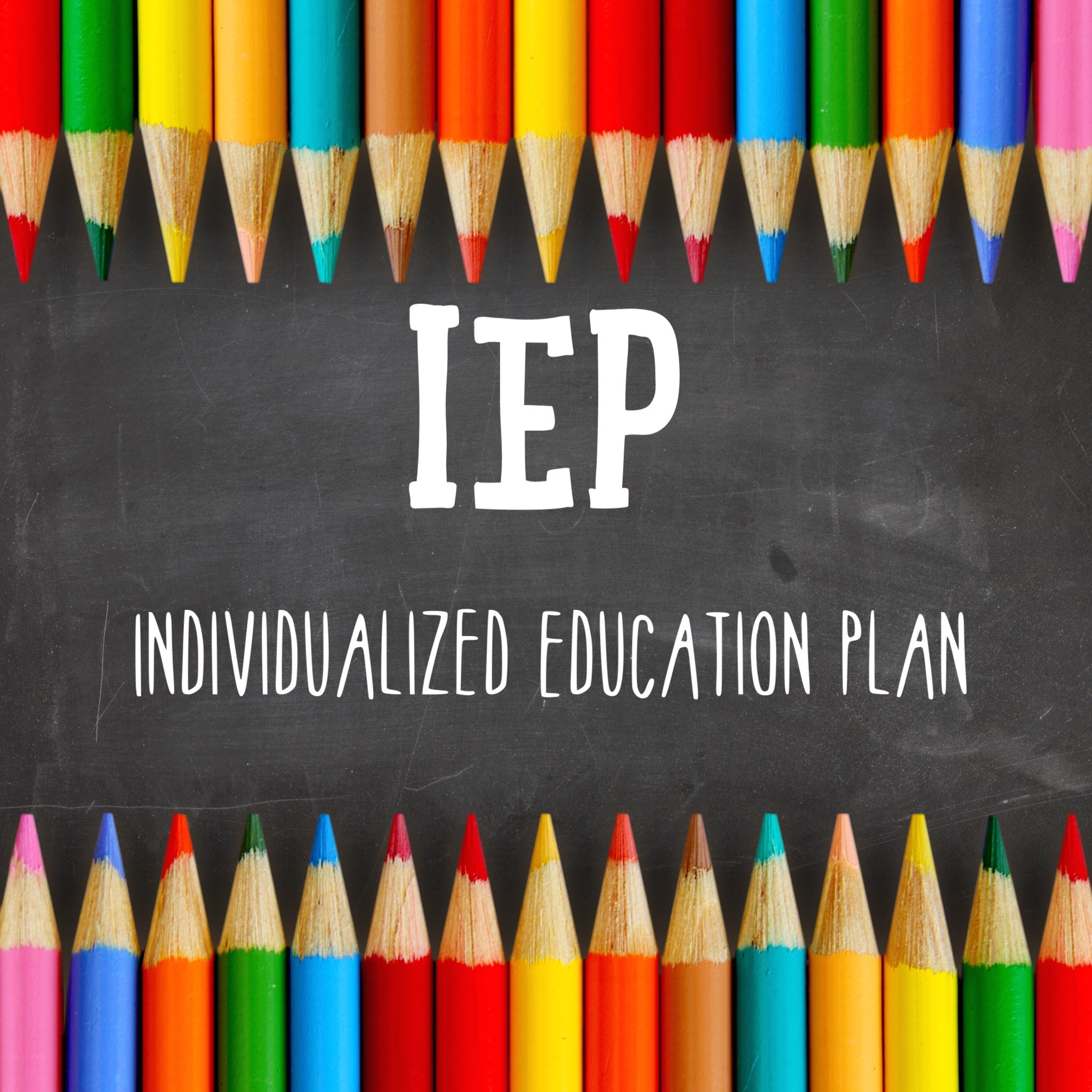
Inclusion Resources
Special Education is not a location... it is a wide range of supports and services that help students with disabilities learn and make meaningful progress. Read more about inclusion and discover effective strategies that help maximize your child’s engagement and participation at school.
- Paula Kluth’s “Inclusion Rules!” - Check out this “one stop shop” for great information and helpful resources that focus on inclusive practices.
- Inclusion for Students with Down syndrome – National Down Syndrome Society provides specific information and best practices for implementing inclusion for students with Down syndrome.
- Understand the benefits of inclusive education for students with Down syndrome and the keys to success in this article published by Down Syndrome Education International (DSE)
Special Education Law and Advocacy Resources
As your child’s best expert and an equal part of the IEP team, YOU can make a positive and meaningful impact on your child’s education. Empower yourself with the knowledge you need to be an informed parent/caregiver and an effective advocate!

Universal Design for Learning (UDL)
Did you know that your child is entitled to differentiated teaching and learning approaches that help remove barriers and increase access to a more meaningful and equitable education? Thanks to Every Student Succeeds Act (2015), students of ALL abilities can now learn in ways that support their unique strengths and areas of need. Check out these helpful resources and discover the wonderful world of Universal Design for Learning, differentiation, and best practices that support an equitable education for your learner.
- Every Student Succeeds Act, 2015
- UDL Guidelines – The team of dedicated educators and specialists at CAST are experts in all things related to UDL. Check out their website to learn more about UDL and gain a better understanding of how to advocate for differentiated learning for your child.
- UDL Principles and Practices – Learn the basic principles of UDL in this informative video presented by the National Center for Universal Design for Learning.
Behavior in School
Navigating a demanding school environment can be challenging for learners with Down syndrome and at some point, your child may engage in non-preferred behaviors. This is not uncommon, and we’ve found there are often very identifiable and valid functions of behavior, such as limited or no access to multi-modal communication tools and inappropriate demand.
Learn more about common behaviors in individuals with Down syndrome and discover effective strategies you can share with your child’s IEP team to help reduce problem behaviors and foster a positive learning experience for all!
- Strategies to Reduce Challenging Behavior in Young Children with Down syndrome
- Behavior and Down syndrome – A Practical Guide for Parents

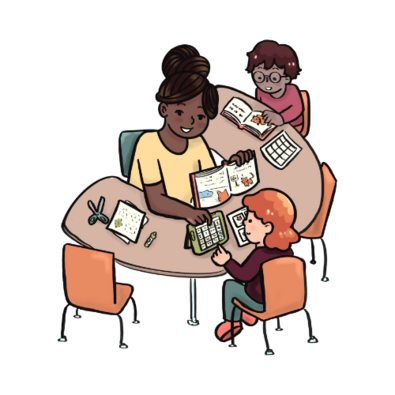
Communication Resources
Your child deserves to be heard. DSCBA offers a wide range of communication resources that support complex communication needs and empower you with the tools you need to advocate for a comprehensive communication plan for your child in school. Discover multi-modal communication supports and strategies that empower your child with a voice!
Our Down Syndrome Education Alliance (DSEA) strives to provide information, training, resources and supports by partnering with Bay Area educators who work with students with Down syndrome. We offer information regarding the general learning profile of individuals with Down syndrome and research-based best practices for educating them. The Alliance offers direct training, consultation, ability awareness presentations, and access to our curriculum, AAC and print libraries.
AS TEENS START TRANSITIONING INTO ADULTHOOD,
THERE ARE A LOT OF CHANGES AND PREPARATION FOR THE FUTURE THAT OCCUR.
IEP- TRANSITION PLAN
Developing an IEP Transition plan is commonly referred to as an Individualized Transition Plan (ITP). By law, under the IDEA, all students are required to have an ITP by the age of 16. It should cover everything from setting realistic IEP goals to preparing for post-transition services after high school.
You may learn more about the ITP at Disability Rights California.
LIFE AFTER SCHOOL
Students leaving high school with a Certification of Completion have the option of attending their school district’s post-secondary transition program until the age of 22. These programs typically focus on:
- Pre-employment and employment training
- Independent living skills
- Community integration
- Social skills
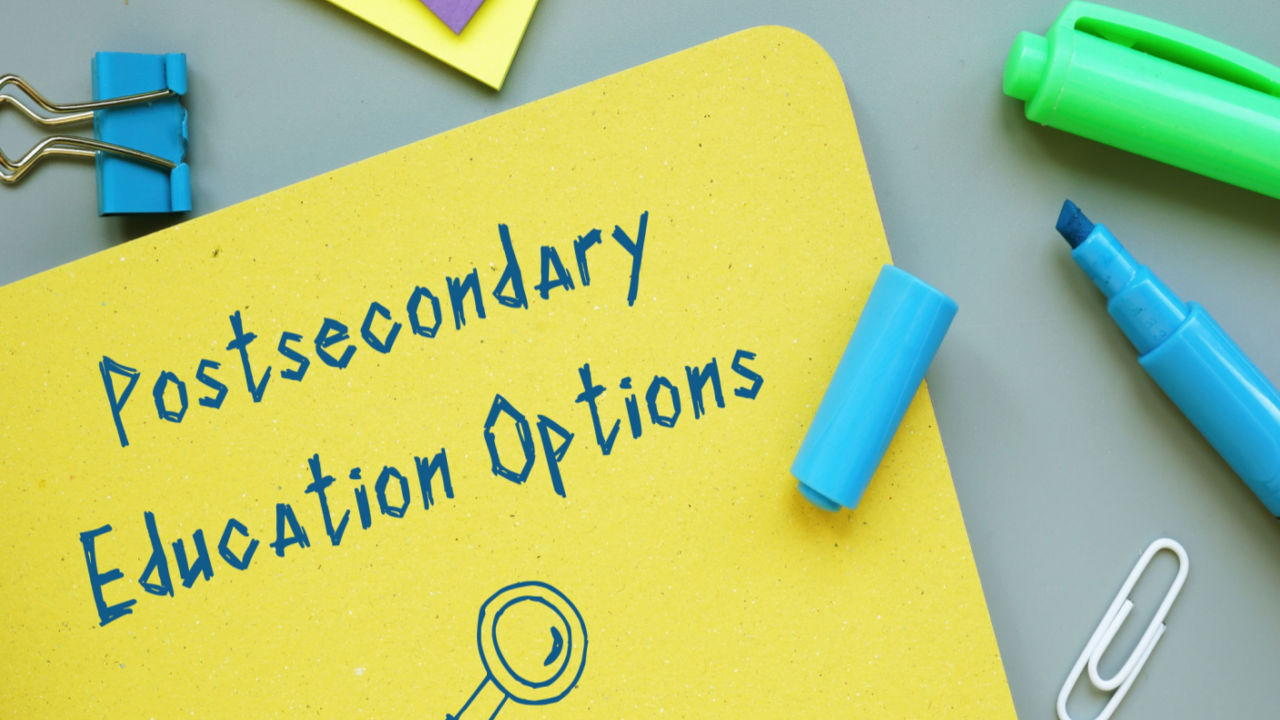
POST SECONDARY COLLEGE OPPORTUNITIES
There are colleges that offer specialized programs within their colleges for students with developmental disabilities- You may find a list of California college opportunities at THINK College.
- Ruby’s Rainbow is a nonprofit organization that offers scholarships to students with Down syndrome who are seeking post-secondary education.
- UPS for DownS also has scholarships for individuals seeking higher education.
PUBERTY
Puberty can start at about the same age for teens with Down syndrome as for other young people. Along with puberty and the psychical changes that occur, be prepared for mood swings, bouts of confusion and possible tiredness.
- Many families have reported that using apps for tablets and/or phones for tracking monthly cycles have been helpful for their daughters.
The Adult Down Syndrome Center has some great visual supports
Click here to view their resources on Puberty
Good books to review with your teen are available in our lending library:
The Girl’s Guide to Growing Up - by Terri Couwenhoven, an experienced sex educator who specialized in working with people with IDD.
Written on a third-grade reading level for preteens or young teenaged girls to read by themselves or with a parent, it's filled with age-appropriate facts, realistic illustrations and photos, icons, and a Q&A.
The Boy’s Guide to Growing Up - by Terri Couwenhoven, an experienced sex educator who specializing in working with people with IDD
This guide gives boys with intellectual disabilities the facts they need to navigate puberty. Written at a reading level for boys aged 9 to 16 years The book's text, realistic illustrations, and learning activities enable boys to read the book themselves or follow along with the aid of an adult.
SEXUALITY / DATING
Discussing this topic earlier than you think is often the best time. It is best to start the dialog before questions arise, because they can’t ask questions about things they don’t know about yet! In addition, you might want to preempt the questions that might come up on sexual health topics from TV, movies, social media, or their peers. Keep it straightforward, simple, and honest. Be sure to utilize those teachable moments while you are watching TV or a movie together.
An informative webinar on the subject was hosted by The Down Syndrome Adult Clinic; Supporting Healthy Sexuality for Individuals with Down Syndrome . This webinar is appropriate for both caregivers and service providers.

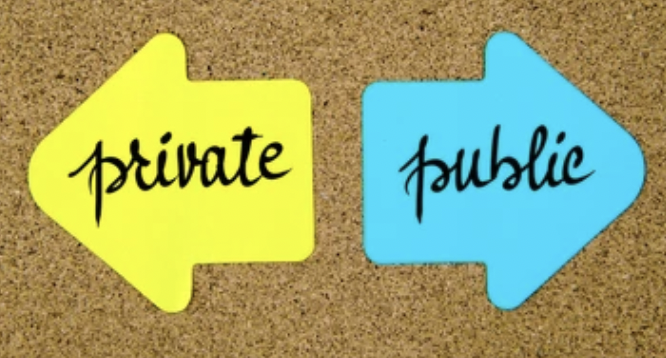
Private vs Public
As puberty approaches teaching the concept of Private vs Public is the first step in teaching about. The Adult Down Syndrome Center has also created some great visual support stories to go along with teaching these concepts.
Being in a Relationship
A good book for those interested in being in a relationship can be found in the DSCBA lending library and now also available on Amazon :
Boyfriends & Girlfriends: A Guide to Dating for People with Disabilities
Written by Terri Couwenhoven, this book is for anyone who is already in a relationship, ready to start one, or still only dreaming about it. The guide is also an informative read for parents, counselors, and other support providers.
Dating Workshop- If you are interested in learning about your teen/young adult participating in a dating workshop, please contact Programs@dscba.org to learn more.
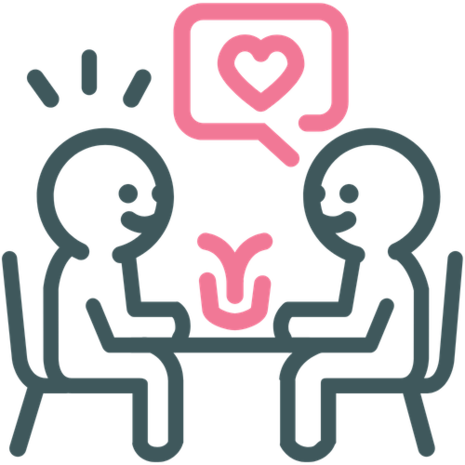
MEDICAL HEALTH CARE
Pediatric to Adult Medical Health Care should start in adolescence and be completed by the age of 20. There are several things to consider before reaching adulthood.
- Health Passport for individuals to share with their physicians on how they can best support them.
- Children’s Hospital of Philadelphia’s Trisomy 21Tool kit outlines steps to follow as you work through this process along with
- Tips to Transition to best prepare you and your teen with Down syndrome.
- Dr Noemi Spinazzi from the Down Syndrome Clinic at Children’s Hospital Oakland presented to the DSCBA on the topic of Transitioning into Adult Medical Care.
- The GLOBAL Medical Care Guidelines for Adults with Down Syndrome (GLOBAL Adult Guideline) provides evidence-based medical recommendations to support clinicians in their care of adults with Down syndrome. Also available to download is a family friendly version and checklist intended to support the health of adults with Down syndrome encouraged to be shared with medical professionals.
- For more information on the guidelines you may watch a recorded webinar presented by two of the authors, Martin Barry, MD and Moya Peterson, PhD, SPRN, FNP-BC.
MENTAL HEALTH
According to the National Down Syndrome Society at least half of all children and adults with Down syndrome will face a major mental health concern during their life, a statistic that is similar to the general US population. The most common mental health concerns in individuals with Down syndrome include anxiety, obsessive-compulsive behaviors, oppositional behaviors, depression, and tic disorder.
- Mental health assessments should include an assessment of physical health to ensure that any physical issues are not affecting mental health in any way.
- Dr. Brian Chicoine from the Adult Down Syndrome Center in Illinois has published an article listing possible physical conditions that can affect mental health.
- A good resource on Mental Health written by Dr. Brian Chicoine and Dennis McGuire, may be found in our library; Mental Health in Adults with Down Syndrome, Second Edition. It is also available in PDF.
GRIEF SUPPORT
- Let's Talk About Death a booklet created by Down's Syndrome Scotland
-
The Adult Down syndrome Center has several resources about grief (in many instances not just death)
-
Grief Webinar- Rose Reif
MENTAL HEALTH ALLIANCE
Through our Mental Health Alliance Pilot Program, we provided information, trainings, resources and supports by partnering with therapists, therapy centers and training institutes to motivate and better equip mental health professionals to feel confident in working with individuals with Down syndrome and other Intellectual or Developmental Disabilities. The findings of the pilot program can be read in our final report.
The Mental Health Alliance has created an online resource of communication tools and visual supports.
| Mental Health Alliance Padlet |
If you would like to learn more about this program, click here
REGRESSION
Regression can be caused by many things and is associated with a marked decline in previously established functions.
- Regression in Persons with Down Syndrome: Current Consensus Update for Families written by the Down Syndrome Medical Interest Group (DSMIG) discusses symptoms, possible causes and treatments.
- Dr. Brian Chicoine hosted a webinar about decline in skills in adolescents and adults with Down syndrome which addresses Down Syndrome Regression Disorder, Alzheimer’s Disease and other reasons of decline.
- Children’s Hospital in Los Angeles is leading a pioneering study to find new treatments for Regression in individuals with Down syndrome.
- Reversing Course: Down Syndrome and Regression - Down Syndrome Resource Foundation: On Season 6, Episode 2 of The LowDOWN: A Down Syndrome Podcast, Dr. Jonathan Santoro and Dr. Eileen Quinn give us the lowdown on Down syndrome and regression, and Cindy Harasen shares her family’s story.
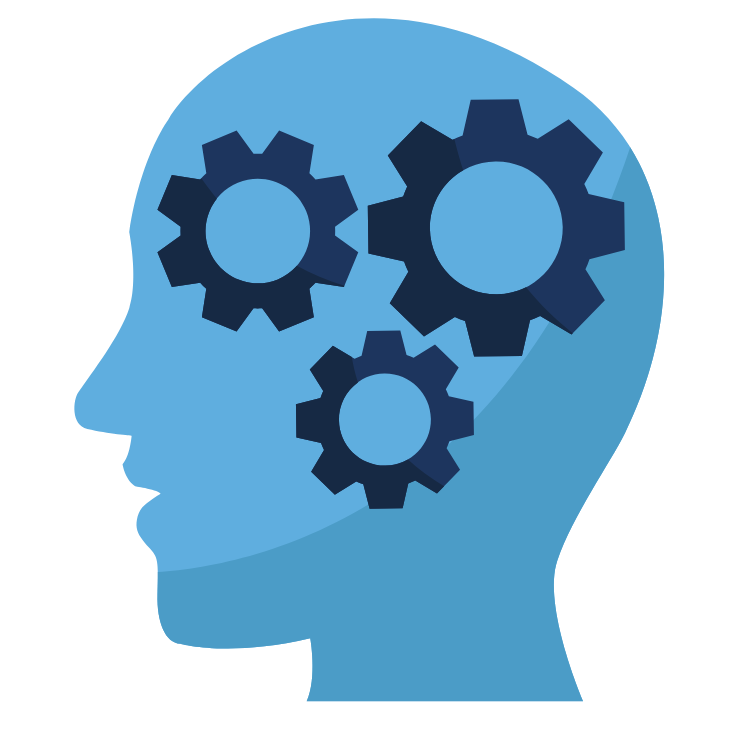
Dermatology Resources for Patients With Down syndrome
Certain skin conditions are more common in infants, children, and teenagers with Down syndrome. The Life Stages handouts below are organized into specific age categories to illustrate some of the more common skin conditions seen in each of these developmental stages. The Society for Pediatric Dermatology (SPD) has created a series of informative handouts for use by patients with Down syndrome and their families.
Nutrition / Exercise / Weight Managment
The importance of a healthy diet and exercise is no different for individuals with Down syndrome than it is for the general population, however the challenge can be greater, working around both physical and dietary restrictions that can possibly occur.

Exercise
When it comes to finding effective ways to encourage physical activity the ultimate goal is to find enjoyable activities to build on functional ability. With that in mind, it’s important to seek out opportunities to build and improve balance, strength and the cardiovascular system. Ideas could include dancing, swimming, walking, physical video games, such as Wii Sports and Just Dance. Joining team sports through Special Olympics, Challenge Baseball and E-soccer can be fun ways to incorporate exercise that also provide the benefit of social interaction.
- For local recreational opportunities see our Recreational Directory
- The National Down Syndrome Society (NDSS) has designed the 321go! program to promote healthy lifestyle choices in physical activity, balanced nutrition, and emotional wellness among individuals with Down syndrome and their families.
Nutrition/Weight Managment
Individuals with Down syndrome have a higher likelihood of being obese than their typically developing peers.  Sometimes it is the result of hypothyroidism or perhaps they may have a lower level of metabolism. This along with other health issues such as Celiac disease or lactose intolerance can make the incorporation of a healthy daily diet an extra challenge.
Some strategies that can be implemented that assist in maintaining a healthy weight can include, avoiding food as a reward, controlling portion sizes, eating fewer snacks between meals, eliminating sodas (both regular & diet), preparing meals at home and empowering individuals to participate in both the planning and the cooking of the meals.
- The Down Syndrome Nutrition Handbook: A Guide to Promoting Healthy Lifestyles
- Cooking By Color: Recipes for Independence

Financial / Legal

TURNING 18
SSI - Social Security Income
DECISION MAKING AS AN ADULT
Upon reaching the age of 18, a child will be considered a legal adult, gaining the authority to make his or her own life decisions regardless of any cognitive or developmental disability. A parent will no longer have the legal authority to make decisions for his or her child regarding health care, education, finances, etc.
There are a couple of options that a parent can take to assist their children in making these decisions.
Supported Decision Making
Supported Decision Making (SDM) is a tool that allows people with disabilities to retain their decision-making capacity by choosing supporters to help them make choices. A person using SDM selects trusted advisors, such as friends, family members, or professionals, to serve as supporters. The supporters agree to help the person with a disability understand, consider, and communicate decisions, giving the person with a disability the tools to make her own, informed, decisions.
To learn more information on SDM, watch our recorded webinar with Steve Ruder from UC Davis, Mind Institute.
Limited Conservatorship
A limited conservatorship is a court proceeding where a judge gives a responsible person, called a limited conservator, certain rights to care for another adult who has a developmental disability (DD), called a limited conservatee.
It is best to start the process about 6 months before the person's 18th birthday. Once the paperwork is filed with the court, it can take 10-12 weeks or longer for the court to process the paperwork. The conservatorship will be effective upon the conservatee's 18th birthday. However, a limited conservatorship can be established at any time after the person is 18 as well.
There are 7 powers that can be granted:
- To fix the person's residence.
- Access to confidential records and papers.
- To consent or withhold consent to marriage.
- The right to contract.
- The power to give or withhold medical consent.
- Control social and sexual contacts and relations.
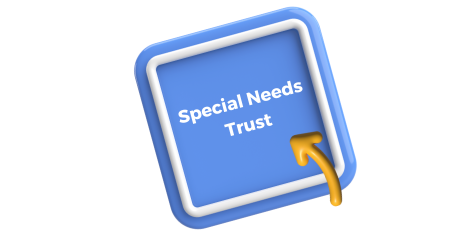
SPECIAL NEEDS TRUST
The advantages to establishing a Special Needs Trust for a child with Down syndrome is to preserve the beneficiary's eligibility for vital government benefits, and the SNT can help protect the assets entitled to a beneficiary. There are several attorneys in the Bay Area that can help with setting up a SNT, you may find some listed on our resource directory created by our member’s recommendations.
CalABLE
CalABLE is a savings and investment plan offered by the state of California to individuals with disabilities.
To understand how Special Needs Trust & CALAble can work together, The Arc Of California has a recorded presentation on this topic.
LETTER OF INTENT
A letter of intent is an important estate planning document that a parent can prepare, it is not a formal legal document that must be created by an attorney. The goal of a letter of intent is to memorialize your knowledge of your child’s needs so that you may guide future caregivers, guardians and trustees in providing the best possible care for your child. This thoughtful letter of intent is to help ensure that those who come after you will have a better understanding of the best way to assist in managing and caring for your child. This information frequently included in a letter of intent includes, but is not limited to:
- Family history
- Medical history
- Current medications and/or current therapies
- Medical professionals’ contact information (include any doctors, therapists, etc.)
- Daily routine and schedule information
- Personal preferences which may include details related to routines, social interactions, diet, therapies, etc.
- Details on communication tools/aids, mobility concerns
- Contact information for personal friends
- Current educational/day program or extracurricular activities and/or employment
- Any other details which may help a new caregiver
- Personal statement reflecting any thoughts, hopes, or wishes for your child’s future
OTHER FINANCIAL/LEGAL
- PERSON CENTERED PLANNING
- SELF-DETERMINATION
- KEEPING THINGS ORGANIZED
Current Programs Available
THRIVE Sessions
These classes are groups that support key skills for the adult-aged population. We focus on skill building in three main areas: Social/Friendship, Leisure/Recreation and Inter/Independent Living. These very active and fun groups emphasize positive communication and social values, personal awareness and empowerment through vital peer and group relationships, fitness and recreation, and creative movement and the expressive arts. Emphasis is on ability and personal responsibility in a safe and exciting group.
Berkeley Adults (Summer Session)
Thursdays: In - Person Tuesdays & Thursdays: 5:00 - 6:30pm
Facilitator(s): Jennifer Cooper
These classes are groups that support key skills for the adult-aged population. We focus on skill building in three main areas: Social/Friendship, Leisure/Recreation and Inter/Independent Living. These very active and fun groups emphasize positive communication and social values, personal awareness and empowerment through vital peer and group relationships, fitness and recreation, and creative movement and the expressive arts. Emphasis is on ability and personal responsibility in a safe and exciting group.
Concord Adults
Wednesdays: 4:15pm - 5:45pm
Facilitators: Teresa Jorgensen
These classes are groups that support key skills for the adult-aged population. We focus on skill building in three main areas: Social/Friendship, Leisure/Recreation and Inter/Independent Living. These very active and fun groups emphasize positive communication and social values, personal awareness and empowerment through vital peer and group relationships, fitness and recreation, and creative movement and the expressive arts. Emphasis is on ability and personal responsibility in a safe and exciting group.
Danville (& San Ramon Valley) Adults
Tuesdays: 4:00 p.m. - 5:00 p.m.
Facilitators: Marianne Iversen, Debbie Munoz
Thursdays: 4:00 p.m. - 5:00 p.m.
Facilitators: Marianne Iversen
Elementary THRIVE is educationally and developmentally appropriate for children ages 8-11 with Down syndrome, combining cognitive skill development with positive social and behavioral interaction with a focus on fine and gross motor skills.
Danville Tween THRIVE (Ages 8-11)
Mondays: 4 - 5:00 pm
Facilitator: Chloe Gundry; Co-Facilitator: Bianca Gundry
Winter / Spring 2026 Session
- Jan. 5, 12 (No Class 1/19), 26
- Feb. 2, 9 (No Class 2/16), 23
- Mar. 2, 9, 16, 23, 30
- Apr. (No class 4/6) 13,( No Class 4/20), 27
- May 4, 11, 18, (No class 5/25)
- June 1
For more information email: Programs@dscba.org
Here is a preview video of the Early Elementary THRIVE program from previous years (formerly Peer Development Class)
The goals of the Teen Classes are to improve students’ language development, reading comprehension, confidence and self-expression. The emphasis is on enhancing socialization skills, building friendships and practicing teamwork, cooperation and respect for self and others.
Danville Teens & Young Adults
Wednesdays: 4:00 p.m. - 5:30 p.m.
Facilitator: Aubree Miletich
Winter/Spring 2026: Enrolling Now!
- Jan. 14, (No Class 1/21), 28
- Feb. 4, 11, 18, (No Class 2/25)
- Mar. 4, 11, 18, 25
- Apr. 1, (No Class 4/8), 15, (No Class 4/22,) 29
- May 6, 13, 20, 27
- Jun 3 ,10
The goals of the Teen Classes are to improve students’ language development, reading comprehension, confidence and self-expression. The emphasis is on enhancing socialization skills, building friendships and practicing teamwork, cooperation and respect for self and others.
Rohnert Park Teens & Adults
Thursdays: 4:00 p.m. - 5:30 p.m.
Facilitator: Lori Rotolo
Co-Facilitator: Jeremy Rozet
Winter/Spring 2026 - Enrolliing Now!
- Jan. 8, 15, 22, 29
- Feb. 5, 12, (No Class 2/19), 26
- Mar. 5, 12, 19, 26
- Apr. 2, (No Class 4/9), 16, 23, 30
- May 7, 14, 21
The goals of the transtioning youth and young adult classes are to improve students’ language development, reading comprehension, confidence and self-expression. The emphasis is on enhancing socialization skills, building friendships and practicing teamwork, cooperation and respect for self and others.
Virtual Teen & Young Adults
Wednesdays: 4:00 - 5:00 pm
Facilitator: Christina Lewis
These classes are groups that support key skills for the adult-aged population. We focus on skill building in three main areas: Social/Friendship, Leisure/Recreation and Inter/Independent Living. These very active and fun groups emphasize positive communication and social values, personal awareness and empowerment through vital peer and group relationships, fitness and recreation, and creative movement and the expressive arts. Emphasis is on ability and personal responsibility in a safe and exciting group.
Virtual Adults
Tuesdays: 4:00pm - 5:00pm
Facilitators: Christina Lewis
Connection Groups
Early Connections offers a friendly and supportive environment for parents and their babies (ages 0–3). We share helpful information to support your baby’s development. Some months we invite guest speakers and focus on a specific topic.
This group meets two times a month: one Wednesday evening and one Saturday morning.
Facilitator: Cathleen Small, Director of New Family Services
- Location: DSCBA, 101-J Town and Country Dr, Danville
- Saturdays 9:30am–11:00am
Early Connections Play Dates
- Jul 15 - 10 am - 12 pm
- Mia's Dream Come True All-Abilities Playground, Tennyson Park, 28377 Huntwood Ave, Hayward, CA 94544
- Aug 5 - 10 am - 12 pm
- Inclusive Playground at Lucchesi Park, 320 N McDowell Blvd, Petaluma, CA 94954
- Sep 9 - 10 am - 12 pm
- Magical Bridge Playground, Red Morton Park, 938 Valota Rd, Redwood City, CA 94061
Teens and Young Adults - Saturdays
Teens and Young Adults with Down syndrome are welcome to join this new group for fun and social connections. This is a great opportunity for Teens/Young Adults and their families to meet and connect!
- Danville Group - DSCBA office -
- Saturdays: 11:30 am - 1:00 pm
- 2/21, 4/18, 6/20, 8/15, 10/17
- Saturdays: 11:30 am - 1:00 pm
- Sonoma - Rohnert Park UCP Office - 6593 Commerce Blvd, Rohnert Park
- Saturdays: 11:30 am - 1:00 pm
- 2/21, 5/16, 8/15, 10/17
- Saturdays: 11:30 am - 1:00 pm
If you are caring for someone with DS who exhibits symptoms of Alzheimer’s disease or a related dementia please join us in this monthly virtual meeting.
- Facilitators: Marianne Iversen
- 3rd Thursday of the Month: 6:00 p.m. - 7:00 p.m.
- Location: Virtual
- Jan 15, Feb 19, Mar 19, Apr 16, May 21, Jun 18, Jul 16, Aug 20, Sep 17, Oct 15, Nov 19, Dec 17
Email: marianne@dscba.org for more information
Grandparents of children with Down syndrome are welcomed and encouraged to join this monthly group. This is an opportunity to exchange information, share common experiences, and be encouraged by other grandparents with similar issues and concerns.
- Facilitator: Michelle Slape, Michelle@dscba.org
- Location: Hybrid - Zoom / DSCBA, 101-J Town and Country Dr, Danville
- 10:00am–11:30am, Third Wednesday of the month
- Jan 21, Feb 18, Mar 18, Apr 15*, May 20, Jun 17, Jul 15, Aug 19*, Sep 16, Oct 21, Nov 18, Dec 16*
- In - person meetings in Danville office are marked with "*"
- All other meetings dates by Zoom.

Sibling Support
Brothers and sisters of those with Down syndrome tend to be compassionate, understanding, wonderful people. But we also know that being the brother or sister of someone with Down syndrome can have its tough times, too!
If you would like more information about resources please contact info@dscba.org
Additional Resources
Organizations:
- Sibling Leadership Network: www.siblingleadership.org
- Provides siblings of individuals with disabilities tools to advocate for their sibling and for issues important to their family.
- Sibling Support Project: www.siblingsupport.org
- A national network to provide support to siblings of people with disabilities. Sibling support workshops (SIBSHOPS) are available throughout the country.
- SibShops: Find a SibShop near you
- National Down Syndrome Congress for ADULT SIBLINGS: www.ndsccenter.org/adult-siblings
- National Down Syndrome Society: Caring For Your Family
Books about Siblings and Down syndrome*:
- Fasten Your Seatbelt: A Crash Course on Down Syndrome for Brothers and Sisters
- Brian Skotko and Susan Levine (Woodbine House, 2009). Uses a question and answer format to address questions from teens who have a sibling with Down syndrome.
- 47 Strings: Tessa's Special Code
- Carey, Becky (Little Creek Press, 2012). A big brother learns about his little sister’s special code. A book to help explain Down syndrome to young children.
- Special Brothers and Sisters-
- Hames, Annette and Monica McCaffrey, editors (Jessica Kinsgley, 2005). Accounts from real-life siblings of children with special needs.
- Special Siblings-
- McHugh, Mary, Revised Edition (Brookes Publishing, 2003). Interviews with more than a 100 siblings and experts.
- The Sibling Slam Book-
- Meyer, Don, editor (Woodbine House, 2005). Eighty teenagers talk about what it is like to have a brother or sister with special needs.
- The Sibling Survival Guide-Indispensable Information for Brothers and Sisters of Adults with Disabilities
- Meyer, Don and Emily Holl, editors (Woodbine House, 2014). Advice for siblings on topics ranging from communication to medical and legal issues.
- Views from Our Shoes
- Meyer, Don, editor (Woodbine House, 1997). Essays from children who have a sibling with a disability.
- We'll Paint the Octopus Red-
- Stephanie Stuve-Bodeen, (Woodbine House, 1998). A little girl prepares to welcome her new baby brother with Down syndrome. Ages 3-7.
- Your Loved One is Having a Baby with Down Syndrome-
- When you learn that someone you love is expecting a baby with Down syndrome, you naturally have concerns, and wonder what to say and do. This book will help you through your initial, normal reactions of sadness, shock, and worry, and give you the information and perspective you need to welcome a baby with Down syndrome.
*Check to see if a copy is available to borrow from our Lending Library
Email the Lending Library
We have several private Facebook Groups to serve the needs of our diverse membership. Please click through the links to request to join. Our main Facebook page is located here.
- Young Connections at DSCBA
-
A DSCBA Connection group for parents of young and elementary-aged children. This private group provides a place to share and support one another in a respectful environment.
-
- DSCBA Homeschoolers
- This private group, a part of the Down Syndrome Connection of the Bay Area (DSCBA), is open to parents, family members and caregivers who homeschool a child or adult having Down syndrome. This group also welcomes parents or persons in the Bay Area seeking more information about homeschooling their loved one with Down syndrome. This is a place for families to ask questions and share advice, resources, and experiences about the unique challenges, added stress, struggles and successes of homeschooling. The focus is on helping each other to find possible solutions, along with sharing humorous stories, in a safe, non-judgmental environment.
- DSCBA Conexión de Síndrome Down del Área de la Bahía
-
Down Syndrome Connection es una organización apasionada y dedicada a fomentar el potencial ilimitado en niños y adultos con síndrome de Down en todo el Área de la Bahía de San Francisco desde 1998.Este es un lugar para que las familias y cualquier persona con un ser querido con el síndrome de Down puedan hacer preguntas, compartir consejos, recursos y experiencias sobre los desafíos únicos, el estrés adicional, los retos y los éxitos. La atención se centra en ayudarse mutuamente a encontrar posibles soluciones, junto con historias divertidas, en un entorno seguro y sin prejuicios.
-
- DSCBA Dual Diagnosis Support
-
This private group, a part of the Down Syndrome Connection of the Bay Area (DSCBA), is open to parents, family members, caregivers, and others working with a child or adult having Down syndrome and autism in the Bay Area. This group also welcomes parents or persons in the Bay Area seeking more information about a dual diagnosis of Down syndrome and autism.This is a place for families, and anyone touched by a person having dual diagnosis, to ask questions, share advice, resources, and experiences about the unique challenges, added stress, struggles and successes. The focus is on helping each other to find possible solutions, along with humorous stories, in a safe, non-judgmental environment.
-
- DSCBA-Parents/Caregivers of Teens and Adults with Down Syndrome
- A DSCBA Connection group for parents/caregivers of Teens and Adults with Down syndrome. This is a private group that is meant to give an opportunity to share and support one another in a respectful environment.
Music Therapy Sessions
In Person Music Therapy
-
IN PERSON MUSIC THERAPY POLICIES:
- Indoor Sessions
- Must be a member of DSCBA
- Must register in advance to attend (waitlisted registrations and drop ins, are not guaranteed a spot)
- Registration closes 2 days before each session or when the session is full
- There is a 6 participant minimum and 12 participant maximum
- One Parent or Guardian must be present to assist their child as needed.
- We may limit sibling participation for classes that frequently become full in order to make room for more families.
TO REGISTER: Please Click on the Class & date you wish to attend.
-
Danville Music Therapy for Babies & Crawling Children (no siblings):
2nd Saturday of the month- Location: DSCBA Office Classroom, 101 J Town & Country Dr., Danville
- 10:00 a.m. - 11:00 a.m.
- Jan 10, Feb 14, Mar 14, Apr 11, May 9, Jun 13, Jul 11, Aug 8, Sep 19, Oct 10, Nov 14, Dec 12
- Location: DSCBA Office Classroom, 101 J Town & Country Dr., Danville
-
Danville Music Therapy for Walking Toddlers - 9 Years Old (no siblings) :
2nd Saturday of the month- Location: DSCBA Office Classroom, 101 J Town & Country Dr., Danville
- 11:30 a.m. - 12:30 p.m.
- Jan 10, Feb 14, Mar 14, Apr 11, May 9, Jun 13, Jul 11, Aug 8, Sep 19, Oct 10, Nov 14, Dec 12
-
Danville Music Therapy for Teens & Adults (no siblings):
2nd Saturday of the month- Location: DSCBA Office Classroom, 101 J Town & Country Dr., Danville
- 2:00 p.m. - 3:00 p.m.
- Jan 10, Feb 14, Mar 14, Apr 11, May 9, Jun 13, Jul 11, Aug 8, Sep 19, Oct 10, Nov 14, Dec 12
- Location: DSCBA Office Classroom, 101 J Town & Country Dr., Danville
-
Rohnert Park Music Therapy for Ages 0-12 Years Old:
2nd Saturday of the month- Location: UCP Building, 6597 Commerce Blvd. Rohnert Park, Ca 94928
- 10:00 am - 11:00 am
- Jan 10, Feb 14, Mar 14, Apr 11, May 9, Jun 13, Jul 11, Aug 8, Sep 19, Oct 10, Nov 14, Dec 12
-
Rohnert Park Music Therapy for Teens and Adults:
2nd Saturday of the month- Location: UCP Building, 6597 Commerce Blvd. Rohnert Park, Ca 94928
- 11:30 am - 12:30 pm
- Jan 10, Feb 14, Mar 14, Apr 11, May 9, Jun 13, Jul 11, Aug 8, Sep 19, Oct 10, Nov 14, Dec 12
-
Solano Music Therapy - for Ages 0-12 Years Old
- Location: Kroc Center, Classroom A/B, 586 East Wigeon Way, Suisun City
- 10:00 am - 11:00 am
- Jan 10, Feb 14, Mar 14, Apr 11, May 9
-
Solano Music Therapy - for Teens and Adults:
- Location: Kroc Center, Classroom A/B, 586 East Wigeon Way, Suisun City
- 11:30 am - 12:30 pm
- Jan 10, Feb 14, Mar 14, Apr 11, May 9
Our Mission
To empower, inspire and support people with Down Syndrome, their families and the community that serves them, while fostering awareness and acceptance in all areas of life.





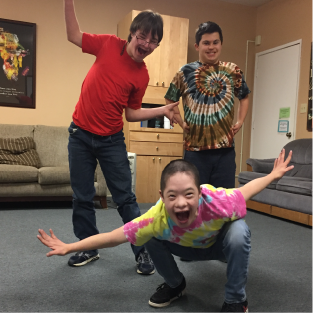
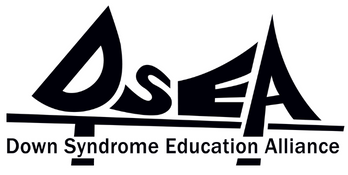
 Contact Us!
Contact Us!

